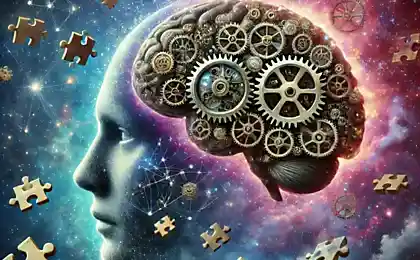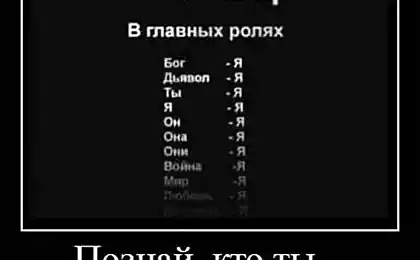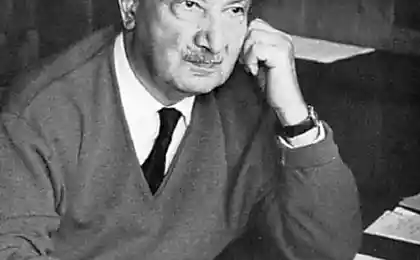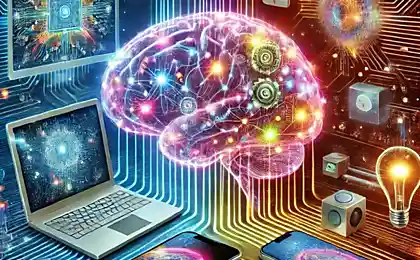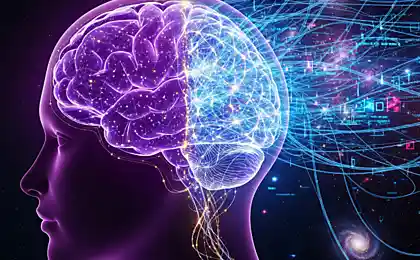219
6 ways to develop thoughtful thinking and how it will help in life

Thinking helps you understand yourself and others. It can be developed in practice, sometimes even without breaking away from everyday affairs. In a world of information noise and constant rush, the ability for deep analysis and meaningful decisions becomes a necessary tool for a fulfilling life.
We make dozens of decisions every day. Many of these are done automatically, based on habits and patterns. But what if we learned to approach life more thoughtfully? What if you developed the skill of deep analysis? This will help not only to make better decisions, but also to better understand yourself and others, build harmonious relationships and find extraordinary solutions to complex problems.
Studies show that people with thoughtful thinking are 43% less likely to commit impulsive actions that they later regret, and 67% more likely to find extraordinary solutions to problems.
What is thoughtful thinking and why is it important
Thoughtful thinking is a conscious approach to perception of information and decision-making, based on deep analysis, reflection and critical reflection. Unlike automatic reactions and superficial judgments, a thoughtful approach involves delving into the essence of the issue, considering the problem from different sides and taking into account the long-term consequences.
The importance of thoughtful thinking in the modern world is difficult to overestimate. It helps:
- Make informed decisions under conditions of uncertainty
- Build deep interpersonal relationships based on genuine understanding
- Find non-standard solutions to complex problems
- Reduce stress and anxiety through deep understanding
- Improve the quality of self-knowledge and personal growth
1. Practice Mindful Meditation
Meditation is not just a method of relaxation, but a powerful tool for training attention and awareness. Regular practice of mindful meditation helps to learn to notice your thoughts without identifying with them, and develops the skill of concentration.
Practical exercise: Start with 5 minutes of daily meditation, focusing on breathing. When you notice that the mind is distracted, gently return attention to the breath. Gradually increase the duration of the practice to 15-20 minutes.
2. Maintaining a reflective diary
Regular written reflections allow you to structure thoughts, identify thought patterns, and better understand your emotional reactions. A reflective diary is a space for dialogue with oneself where one can safely explore any ideas and experiences.
The method of deep reflection: In the evening, take 15 minutes to write a diary, answering the questions: “What is the most important event that happened today?”, “What have I learned about myself or others?”, “What decisions have I made and why?”, “What could I do differently and what conclusions do I draw?”
3. The Five Why Technique
This method, developed at Toyota, helps you get to the root of a problem or situation by consistently asking why. The technique effectively develops analytical thinking and helps to identify non-obvious connections.

Imagine a situation where you regularly put off an important project until the last minute. Let’s use the “Five Whys” technique:
- Why am I delaying the project? Because I feel anxious when I start working on it.
- Why do I feel anxious? Because I'm afraid I won't handle him well enough.
- Why am I afraid of not coping? Because I attach too much importance to the possible assessment of others.
- Why am I so dependent on the opinions of others? Because in the past, criticism has had a big impact on my self-esteem.
- Why does criticism affect my self-esteem so much? Because I associate my value with achievement, not accept myself unconditionally.
4. Active listening practices
The ability to truly listen to others is an essential aspect of thoughtful thinking. Active listening implies full attention to the interlocutor, lack of mental preparation of the answer during his speech and sincere interest in his point of view.
Practical exercise: In the next conversation, try to paraphrase what you heard before expressing your opinion: “If I understand correctly, you think that...” This not only helps you feel heard, but also gives you a deeper understanding of your position.
5. Method of opposite scenarios
This method consists in the deliberate consideration of opposing points of view or possible outcomes of the situation. It helps to overcome cognitive distortions and expand the field of view when analyzing a problem.
When making an important decision, consciously formulate arguments for and against, even if you initially lean toward a particular option. Try to imagine what arguments a person with a contrary opinion would make, and seriously consider them.
6. Integrating thoughtfulness into everyday activities
Thoughtful thinking can be practiced not only at specific times, but also integrated into daily routine activities, turning them into conscious practice.
- Conscious consumption of information: Instead of passively scrolling a news feed, set aside specific time to read the news, analyzing it critically and asking questions about the context and credibility of the sources.
- Thoughtful eating: Turn at least one meal a day into a meditative process, focusing entirely on the taste, texture and aromas of the food.
- Conscious breaks: Instead of automatically switching to social media during a break, take a minute to observe your thoughts and feelings.

The integration of thoughtful thinking into everyday life leads to significant positive changes in many areas.
Professional achievements
A thoughtful specialist is able to see non-standard solutions and better understand the needs of customers and colleagues. Research shows that employees with critical thinking skills are 70% less likely to make mistakes and 40% more effective at solving complex problems.
The story of Michael, head of department at a technology company, illustrates this relationship. Having implemented the practice of daily reflection and five-minute meditation before important meetings, he noted that the quality of decisions made has significantly improved, and conflict situations in the team have become more constructively resolved.
“I used to react to problems impulsively, often making hasty decisions. Now I've learned to pause and ask myself, "What's the real problem behind this situation?" This radically changed my approach to managing and interacting with people, says Mikhail.
Quality of interpersonal relationships
The ability to be thoughtful about the feelings and needs of others is the key to building deep and harmonious relationships. Thoughtful thinking helps:
- Better understand the motives of the behavior of loved ones
- Resolve conflicts more effectively by seeing their root causes
- Building deeper emotional connections through genuine presence and attention
- Overcome prejudices and stereotypes in the perception of others
A thoughtful approach to your emotions allows you not to be held hostage. Regular practice of reflection helps to identify the triggers of negative states and transform automatic reactions into conscious responses.
When we learn to perceive emotions not as absolute truth about a situation, but as signals that require investigation, we gain inner freedom and stability. A meta-analysis of 39 studies found that mindfulness and thoughtfulness practices reduced anxiety levels by 32 percent and improved overall psychological well-being by 27 percent.
Decision-making and life strategy
Perhaps the most significant influence thoughtful thinking has on the quality of decisions and overall life strategy. It allows:
- Distinguish between urgent and not essential
- Making decisions aligned with deep-seated values, not immediate desires
- Seeing the long-term consequences of elections
- Finding a balance between rational analysis and intuitive understanding
The development of thoughtful thinking is not a one-time project, but a continuous path that requires practice and patience. Beginning with small steps—a five-minute meditation, short diary entries, or lucid pauses throughout the day—we gradually transform our approach to life.
In a world saturated with information and incentives, the ability to stop, become aware of what is happening and deeply analyze it becomes not just a useful skill, but a prerequisite for a full, meaningful life. Thoughtful thinking is the key to genuine inner freedom, allowing us to be the authors of our lives, rather than simply reacting to external circumstances.
Glossary of terms
Thinking (Thoughtful Thinking)
The process of deep, conscious analysis of information, situations and their own thought processes, characterized by attention to detail, a critical approach and the desire to understand the essence of phenomena.
reflection
The process of self-knowledge by the subject of internal mental acts and states; drawing the attention of the subject to the content and functions of his own consciousness, including personal structures.
Cognitive distortions
Systematic deviations in perception and thinking due to subjective biases and stereotypes, social, moral and emotional reasons, rather than rational judgment.
Metacognition
Ability to analyze one’s own thought strategies and manage one’s cognitive processes; “thinking about thinking.”
Mindfulness (Mindfulness)
The practice of directing attention to the present moment without judgment or evaluation; a state in which a person focuses on the present moment while calmly being aware of and accepting their feelings, thoughts, and bodily sensations.
Active hearing
A communication technique that requires the listener to focus fully on the speaker’s words, understand the content and reflect what he has heard through paraphrasing, confirming, and clarifying questions.
8 Signs Your Body Gives When It Needs a Break
How to know if someone really loves you. 5 Non-Obvious Signs





